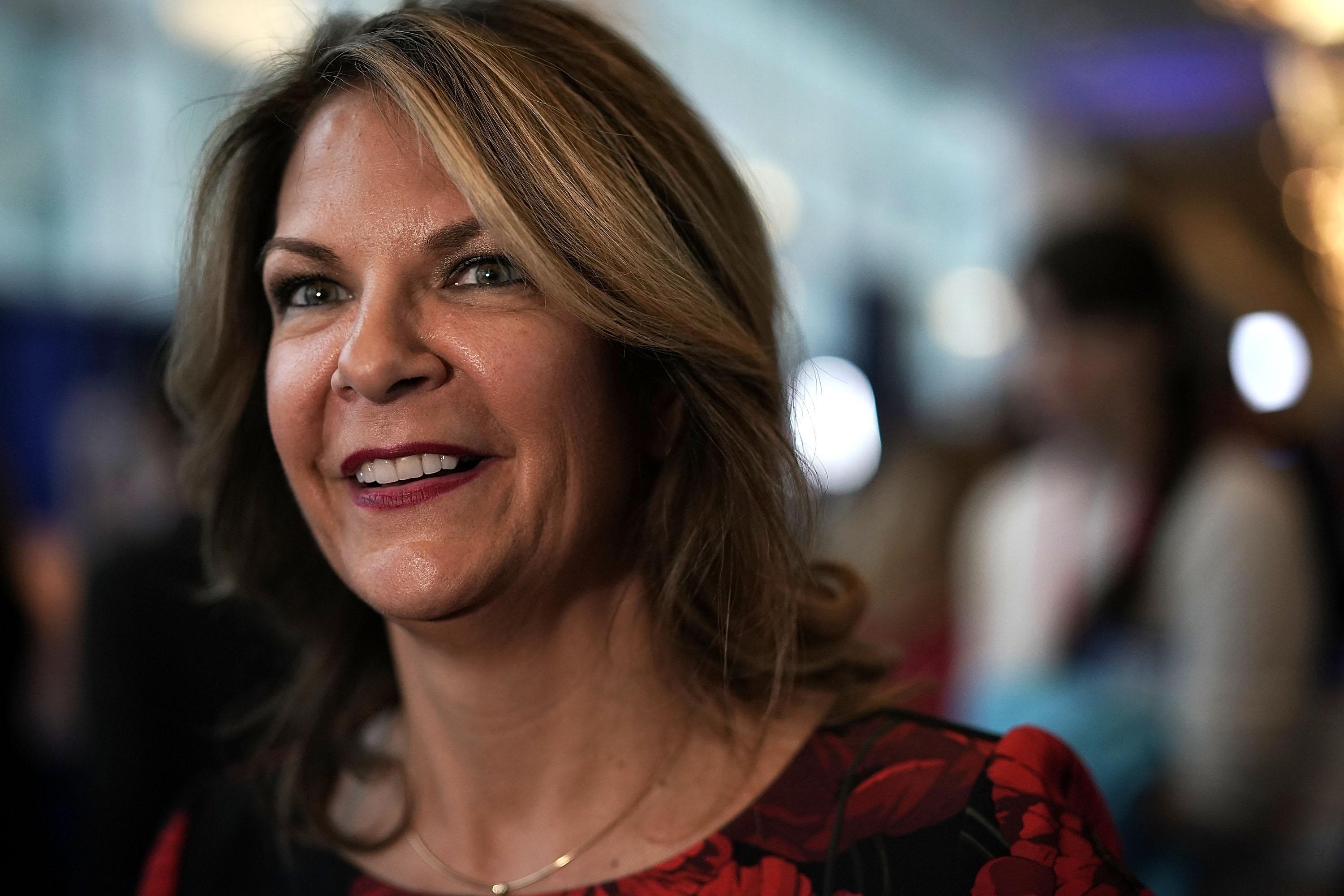Things are going about as well as they can for Senate Republicans in the states that matter most for the midterms. Of the eight races most likely to determine control of the upper chamber, GOP primary voters have already selected establishment-approved nominees in four of them—avoiding a few cartoonish outsiders who threatened to torpedo the party’s chances in the process (see: Blankenship, Don)—and they appear set to do the same in another three states this summer.
The one exception? Arizona, where party leaders’ preferred pick, Rep. Martha McSally, is facing a serious challenge from a pair of conservative flamethrowers in former state Sen. Kelli Ward and disgraced former Maricopa County Sheriff Joe Arpaio, either of which GOP leaders fear will spoil the party’s efforts to hold on to the seat of retiring Sen. Jeff Flake. (In general election polls, all three trail Rep. Kyrsten Sinema, the likely Democratic nominee, but McSally is 7 points back while Ward lags by 11 points and Arpaio by 23.)
Of the two hard-liners, Ward has long been considered the bigger threat to McSally, and this week brought a pair of developments that could help her siphon off support from the Trump-pardoned Arpaio and close the gap with McSally ahead of next month’s primary.
On Wednesday, Arizona Rep. Paul Gosar broke with congressional tradition and spurned his fellow House Republican by endorsing Ward. “We cannot afford another establishment patsy who promises one thing and votes differently,” Gosar said of McSally. The endorsement came one day after the news that Robert Mercer has poured a half-million dollars into a Ward-aligned super PAC, bringing the conservative megadonor’s total contribution to the group up to $800,000.
As has been the case in other GOP primaries during Trump’s reign, terms like establishment and outsider can be a bit blurry. McSally was elected to the House in 2014 as a relatively moderate Republican. She had shown a willingness to compromise on things like immigration and originally kept her distance from Trump, criticizing him for his Access Hollywood boasts about sexual assault and refusing, to this day, to say whether she voted for him. Since entering the Senate race, however, McSally has tacked right on immigration and now happily embraces the president, who reportedly has been persuaded not to endorse one of her primary rivals.
McSally remains the favorite for the GOP nomination, in no small part because Ward and Arpaio appear to be splitting the vote on the far right. In the RealClearPolitics rolling average, McSally leads with 35 percent of the primary vote to Ward’s 25 percent and Arpaio’s 21 percent.
Given Gosar’s right-wing cred—he’s a proudly politically incorrect member of the House Freedom Caucus who once called on Capitol police to arrest undocumented immigrants who were invited to attend the State of the Union—his endorsement might help Ward consolidate support among immigration hard-liners. Mercer’s cash, meanwhile, will definitely help Ward get her message out at a time when she lacks the financial resources to compete with McSally on her own. Whether those advantages will help Ward win next month remains an open question. But Mitch McConnell no doubt felt much calmer before people were asking it.
